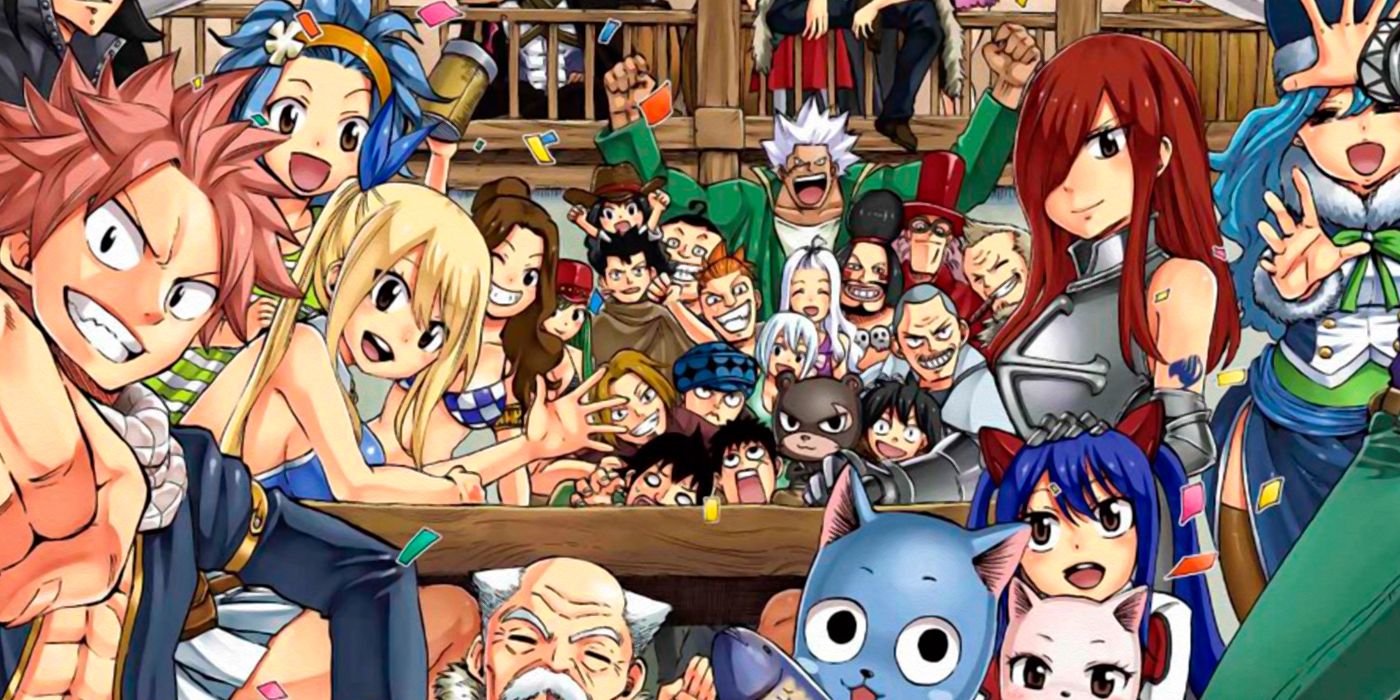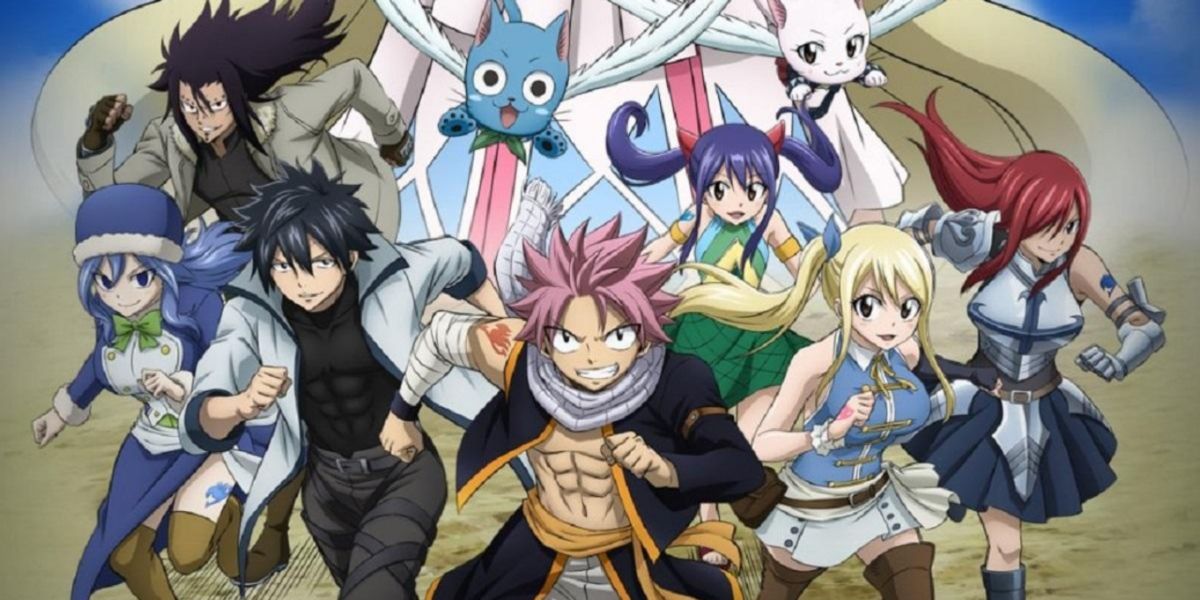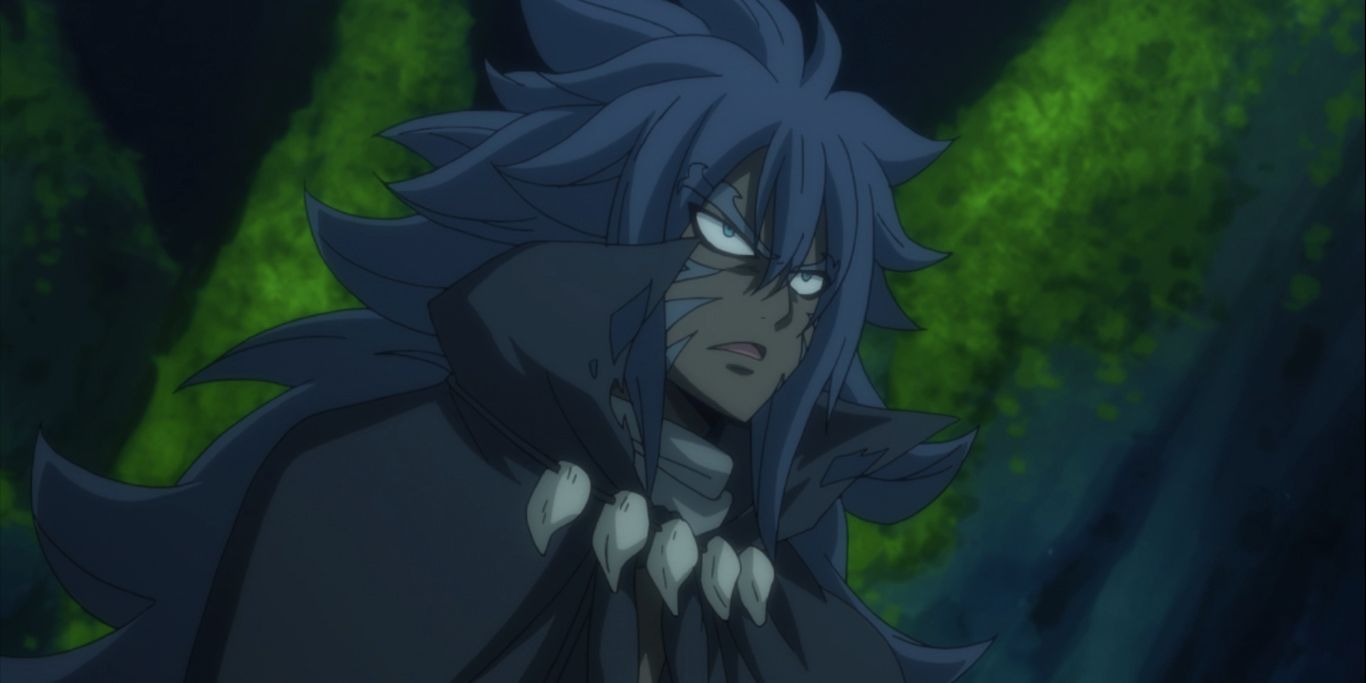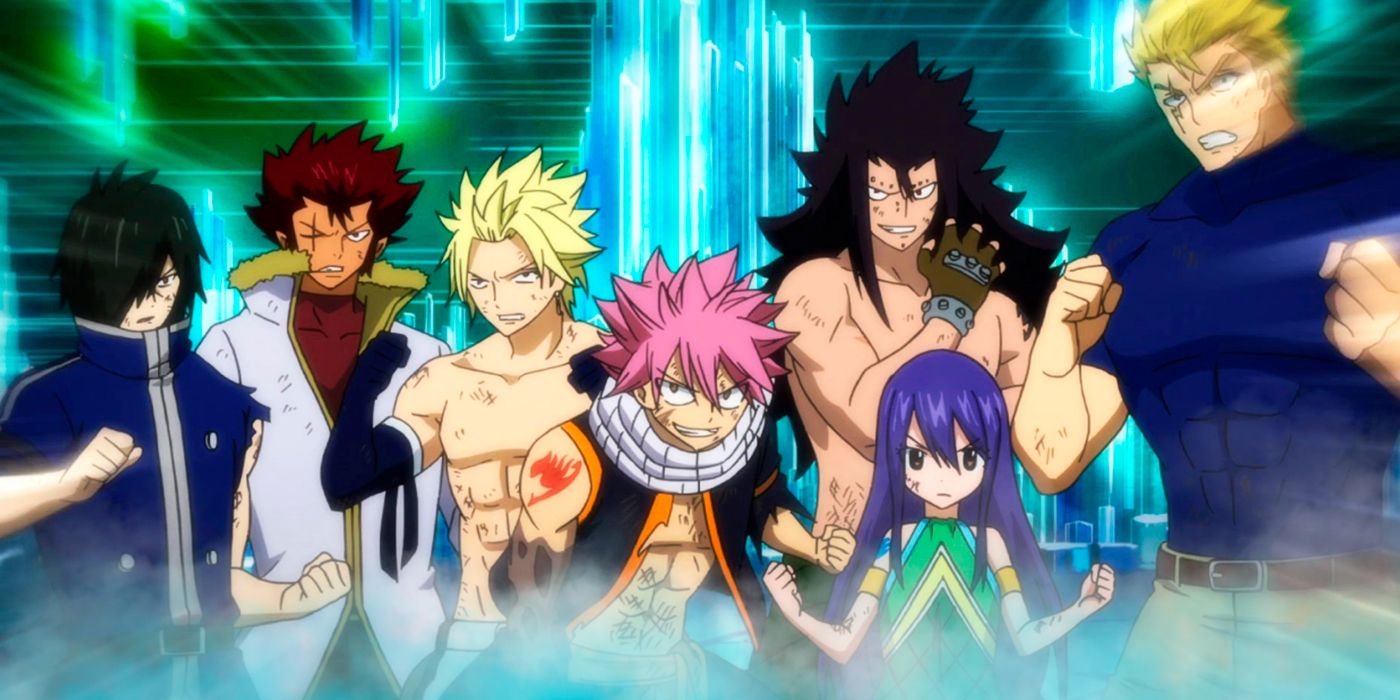When it comes to anime and manga released in the early 2000s, few titles were able to exceed the popularity and success of Fairy Tail. Created by the man who made Rave Master and is currently working on Edens Zero, Hiro Mashima managed to strike gold in this series revolving around the titular wizard guild and their adventures.
Following Natsu Dragneel, a Fire Dragon Slayer, and his friends, the series spanned hundreds of chapters. Through the stories told, many fans ended up growing attached to the characters and invested enough to want to see where it was all leading to. Unfortunately, as successful and beloved as the series was, it wasn't without its fair share of problems.
The Series Had Very Little Direction
Probably the biggest complaint against the series is that the story wasn't handled well. While Fairy Tail isn't the first series to have this said about it, the statement isn't necessarily invalid. By Hiro Mashima's own admission, when the series first started, he had very little planned out. In fact, all he had was seemingly a general idea about who Natsu was, and given how the series progressed, it seems unlikely that he had anything more than just that.
Fairy Tail was set up to be an adventure series, with the main cast taking cases that allowed them to explore the world and have fun together. This is one reason why the series was often compared to some of its contemporaries that had similar premises, most notably One Piece. This did Fairy Tail no favors, as One Piece wasn't only one of the biggest franchises around -- it arguably did everything Fairy Tail was doing way better. Whereas Fairy Tail's stories seemed rather random, with the overarching plot lacking a real sense of structure or planning, One Piece managed to do the opposite, with each arc setting up a future, or at the very least adding something to the audience's understanding of the world in a substantial way.
A good example of this would have been the "Edolas" arc, which features all of Fairy Tail being transported to another world with alternate versions of themselves. While the storyline was definitely fun, it did very little to enhance the series and was almost never referenced again afterward. Compared to One Piece's "Skypiea" arc, which set up so much more than fans realized, "Edolas" didn't really add much to the overall story, making it feel almost like a filler arc. If Mystogan's story didn't come full circle and didn't end up leaving the guild by the end, nothing would have changed at all. In fact, due to Mystogan barely being involved in the story until that point, it still felt that way regardless.
Another glaring example of Fairy Tail's lack of planning or direction is how it handled dragons. At the beginning of the series, Natsu made it clear that his main goal was to find the dragon that raised him, Igneel, even though dragons were thought to have been extinct by that point. As the main character of the series, this implied that much of the series, or at least some of it, would revolve around this personal quest. However, the vast majority of Fairy Tail barely touched on it, and when it did, the explanation felt rather convoluted and poorly handled. Finding out that Natsu was sent from the past into the future to stop the evil dragon Achnologia, and that Igneel had been inside him all along and never told him, not only came out of left field but also felt like half-baked storytelling at best.
The inclusion of the END plot thread as well as the reveal that Zeref and Natsu were actually brothers was another poorly handled curveball. While Zeref's first appearance definitely implied that they were connected in some way, the story didn't do much to set up the reveal until it actually happened. The same could be said about Natsu finding out that he was one of Zeref's demons. These weren't bad ideas, but due to how poorly they were handled, it all felt rather strange and unsatisfying.
The Villains Were Poorly Handled
Then there was how the series handled its main antagonists, Zeref and the aforementioned Achnologia. While the former was admittedly well-written, a lot of his actions such as founding a whole empire without anyone knowing or even his strange rivalry and relationship with Achnologia were very badly set up or handled. The final arc of the series revolved around Zeref trying to obtain the Fairy Heart so that he could fight Achnologia, but for whatever reason, it was never explained why they were fighting to begin with.
Achnologia seemingly wanted to kill all the dragons and Dragon Slayers and would bring some manner of ruin to the world as a result, whereas Zeref wanted to gain power and rid the world of humans as he felt like they were a cancer on the world. These two goals don't seem to conflict with each other all that much, making the final arc of the entire series feel poorly justified. This is a shame, as Zeref was a legitimately well-written character otherwise and Achnologia was a truly imposing and frightening one. If handled differently, they each could have elevated the series to new heights.
Another issue about the villains is that most of them ended up being redeemed through one reason or another, even when they didn't do anything to deserve it. Some characters like Gajeel Redfox had redemption arcs handled incredibly well, not only adding depth to his character but also to other members of the guild, and the series actually justified it through the story. In that sense, most other villains that were redeemed weren't given the same amount of focus or even justification.
The Sabertooth Guild is a primary example of this. When first introduced, they weren't just arrogant and immediately unlikable but also cruel. They spent a good amount of time during the "Grand Magic Games" arc tormenting Fairy Tail and in one instance, even torturing Lucy Heartfilia. While the arc managed to give some of the members a greater amount of depth, the Sabertooth members never really earned any redemption, as almost everything good that they did was absolutely necessary for their own survival or future success. Killing their old guildmaster might have been justified, but it was an act of self-defense, not heroism. Medusa went out of her way to hurt people and even became a demon herself to get stronger, but by end of the series, she was just another friend of the guild.
The Power of Friendship Made Every Victory Cheap and Guaranteed
One of Fairy Tail's most iconic themes is also maybe its worst, and that's its emphasis on friendship. It's not uncommon for anime to feature cheesy moments meant to show the strong bond between its characters, but when almost every major conflict is solved that way, at best it becomes incredibly annoying. If it were used to help save characters from some deep-rooted darkness, such as with Jellal, it isn't bad, as this helped explains certain parts of the story. However, when the final villain of the series was unstoppable before Natsu gave a speech about how much he loved his friends, and then is suddenly able to deliver a decisive blow that saves the day, it simply becomes bad writing and storytelling. What's worse is that this is how Natsu and the rest of Fairy Tail managed to beat almost all of their major opponents throughout the series. There is literally an episode titled "The Power of Feelings," which should highlight just how much of a trope this became.
With all this being said, Fairy Tail is a fun story. For all of its problems, it has some of the best characters in the industry. Even people who don't like Fairy Tail like its characters, showing just how well-written some of them are. The series' biggest hook was always its characters, which is why many people feel that they deserved better than they got. It's important to note that Mashima has handled his later series, Edens Zero, much better than he did Fairy Tail, implying that he learned from his mistakes, and the sequel manga 100 Years Quest is likewise being handled better than its predecessor as far as villains and story direction are concerned. Overall, Fairy Tail is an engaging series that deserves a look by any anime or manga fan.




